Providing care in the clinical areas of chronic pain, mental health and substance use, either alone or as co-morbidities, can be challenging. The BC Adaptive Mentorship Network for Pain, Mental Health and Substance Use (BCAMN) was launched in March 2022 to build primary care capacity to support British Columbians living with chronic pain, mental health and substance use conditions.
BCAMN is intended for community-based primary care providers and allied health care professionals governed by the Health Professions Act. It connects health care provider Mentees with professional Mentors on the topics of chronic pain, mental health and substance use through safe, non-judgmental group-based mentoring and learning opportunities, and on-demand one-to-one mentoring conversations. Mentors and Mentees come from a wide variety of primary care disciplines (including medicine, nursing, physiotherapy, social work and more) and from all regions of British Columbia.
Program format
- The entire network meets nine times a year. Each session is a 75-minutes online event held on the first Thursday of the month at 6:00PM (no meetings in July, August and December).
- The first 45 minutes of each session will be led by a mentor including a Q&A portion.
- The remaining 30 minutes of each session is dedicated to small group activities in breakout room.
- One-to-one mentoring is available on a first come first served basis.
- Mentees can engage in the National Adaptive Mentoring Forum – an online community of practice for Mentors and Mentees across Canada. There are also opportunities to engage in province-wide workshops, profession-specific and/or regional small groups.
Compensation and funding
There is no cost to Mentees who join BCAMN. Mentors are compensated for their time.
Funding for this Project was also provided by the Shared Care Committee (SCC), one of four Joint Collaborative Committees (JCC) representing a partnership between Doctors of BC and the Government of BC.
Frequently Asked Questions
What is adaptive mentorship?
What is adaptive mentorship?
Adaptive mentorship is a safe, non-judgmental experience providing opportunities for clinical conversations tailored to Mentees’ evolving needs. Adaptive mentorship is not a consultative service; rather, it provides an opportunity for Mentees to build knowledge and skills in a supportive networking environment.
Three fundamental tenets of adaptive mentorship:
- Ensure the form of mentorship is adaptive and fits the needs of the participants
- Ensure there is bidirectional value/learning for both Mentor and Mentee
- Create safe and compassionate spaces that cultivate trust and enhance resiliency amongst participants
Adaptive mentorship encourages capacity building through:
- Examining and addressing systemic and clinical barriers to timely access and supports for people experiencing chronic pain, mental health and substance use conditions1
- Building and enhancing connections between specialized services and community/primary care1
- Encouraging longitudinal support that is well aligned with complex care needs1
Adaptive mentorship can include different:
- Environments: in-person, email, phone, video conferencing
- Forms of mentoring: one-to-one, group, peer
- Purposes/durations: discussing single cases vs. longitudinal spanning years
1Webinar on adaptive mentoring: Building compassionate primary care capacity
What are the benefits and impact of adaptive mentorship?
What are the benefits and impact of adaptive mentorship?
Evaluation of the 2022-2025 Adaptive Mentorship Networks in BC and the Maritimes showed that:
- More than 70% of participants reported improvement in their knowledge about chronic pain, metal health and substance use
- More than 75% of participants reported increased confidence in dealing with complex cases
- More than 60% of participants reported decreased burnout
- More than 90% of participants reported increased professional satisfaction
What are the major activities of the Network?
What are the major activities of the Network?
- Nine 75-minutes online sessions on the month at 6:00PM via Zoom (no sessions on July, August and December)
- 45 minutes: presentation by mentor(s) with Q&A at the end
- 30 minutes: small group activities designed and led by mentors
- Province-wide secure messaging groups via Signal, where mentors and mentees can interact in a compassionate, non-judgmental learning community
- Annual four-hours online BCAMN Summit: each event will include a combination of lectures, panel and group work activities (we are seeking accreditation for this annual event)
- 1:1 mentoring activities on an as-needed and first-come-first-served basis
- Resource sharing: Mentors and mentees share resources via Signal and Basecamp, a platform they will have access after joining the network
When are the BCAMN sessions?
When are the BCAMN sessions?
- September 4th 2025: Compassion and Empathy, with Susan Reid Schellinck, BSc,OT
-
October 2nd 2025: Pain Neurophysiology, with Richard Mcilmoyle, BSc, DC, PGCPain
- November 6th 2025: Expectations and Trust Barriers, with Cameron Ross, BSc, MD, CCFP, FCFP and Heather Fulton, B.Sc. (Hons), Ph.D., R. Psych
- December 2025: No session
- January 8th 2026: Fit for Purpose, with Neil Pearson, M.Sc.(RHBS), B.Sc.PT, B.A.-B.P.H.E., C-IAYT, ERTY500
- February 5th 2026: Child and Youth Pain, with Garry Palak, MB, BcH, BAO, FRCPC
- March 5th 2026: Underserved Populations and Myofascial Treatment, with Barbara Eddy, MN, NP(F)
- April 2nd 2026: Trauma-informed Care with Sandra Hodge, BScN, MSN, NP(F)
- May 7th 2026: : Interventional Therapies for Chronic Pain, with Colin Phillips,BSc, MD, FRCPC and Garry Palak, MB, BcH, BAO, FRCPC
- June 4th 2026: Chronic Pain and Chronic Fatigue, with Kat Dikeakos, MSc, OT
- July 2026: No session
- August 2026: No session
How do the small-group breakout room activities work?
How do the small-group breakout room activities work?
- Mentees choose one of the four mentor groups when they apply to the network
- One of the four mentors of each group will design and lead the small group activity with the support of the other three mentors
- After the first 45 minutes of the monthly session, mentees will be able to choose one of the four breakout rooms
- Mentees are encouraged to attend the breakout group session they have chosen at the time of application for their first year in the network. However, mentees can attend another group, if desired
What do Mentors do?
What do Mentors do?
Mentors plan engagement with Mentees by:
- Collaborating with BCAMN Director and Pain BC staff in developing and delivering creative evidence-based initiatives that enhance the learning experiences of Mentees
- Developing small group breakout activities aimed to facilitate growth and learning for Mentees
- Working with the BCAMN Director and Pain BC staff to develop and deliver small group activities focused on specific professions and or regional needs
Mentors engage with Mentees by:
- Providing advice and support within the scope of clinical expertise Covering key competencies while helping Mentees navigate clinical situations
- Providing one-to-one mentorship to Mentees
- Responding to Mentees’ communications within 48-72 hours
- Hosting small, virtual breakout sessions during the monthly meetings
- Contributing to discussions via the National Adaptive Mentoring Forum
- Supporting the development of compassionate, non-judgmental learning communities
- Developing educational sessions for the full BCAMN network
What do Mentees do?
What do Mentees do?
Mentees engage in BCAMN by:
- Attending and actively participating in the monthly events, including the small-group breakout sessions
- Actively participating in the province-wide Signal group and at least one other Signal group
- Attending and following up on any one-to-one mentoring sessions they have scheduled with a Mentor
- Responding to Mentors’ communications within 48-72 hours
- Interacting collaboratively with BCAMN community, including Mentors, the BCAMN Director and Pain BC staff, to ensure a rich and meaningful Mentee experience
- Complying with the guidelines set out within BCAMN for one-to-one communications and group interactions
- Participating in network communication and activities, including the National Adaptive Mentoring Forum, as needed
- Participating in the annual BCAMN Summit (free to all Mentees)
Mentees support BCAMN by:
- Providing feedback on the monthly events through short surveys
- Providing feedback on BCAMN outcomes through the National AMN survey annually
- Providing insight and input on strategies to gain momentum and support for BCAMN
- Promoting the merits of mentoring, along with informing and influencing the larger system, in a climate of continuous quality improvement
What is the time commitment for Mentors and Mentees?
What is the time commitment for Mentors and Mentees?
- Mentees are expected to attend at least five of the nine 75-minute sessions per year
- Both Mentors and Mentees are strongly encouraged to participate in the annual four-hour online BCAMN Summit, and to contribute to discussion via the online National Adaptive Mentoring Forum
- Mentors are expected to dedicate 20-25 hours per year to the network, annual Mentor training workshop, organizing and hosting small group breakout sessions per year, and responding to Mentee requests for 1:1 mentoring
- To acknowledge their contributions to the BCAMN, Mentors receive an honorarium based on the number of hours they dedicate to the network at an hourly rate equivalent to the BC physicians’ sessional rate
- Continuous quality improvement is important for the BCAMN, both in setting direction for the future of the network, and to show our funders the types of impacts the network makes on its members
- Mentees and Mentors are expected to complete a survey upon entering the BCAMN, short surveys after the monthly events and one annual National survey for the duration of their participation in the network
Meet the BCAMN Clinical Director
Meet the BCAMN Clinical Director
Clinical Director
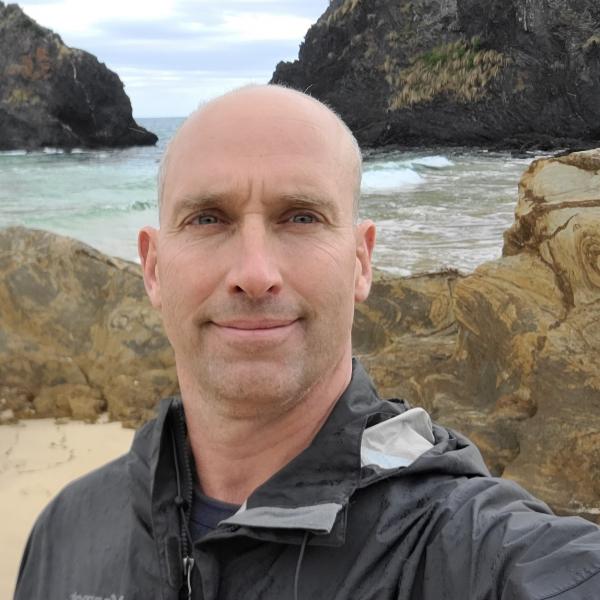
Sean Ebert, BSc, MD, CCFP (FPA), FCFP, FRRMS
Sean has been a rural physician for over 25 years. His current clinical work is focused on helping patients with chronic pain, and he is a passionate student of quality improvement and system change. Sean is privileged to work with Pain BC as a medical co-director for the BC Adaptive Mentorship Network for Pain, Mental Health & Substance Use.
Meet the BCAMN team of mentors
Meet the BCAMN team of mentors
Group one
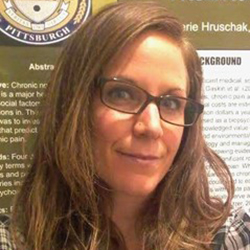
Valerie Hruschak
Dr. Hruschak earned her Bachelor and Master of Social Work from UBC-O, completed a post-graduate certification in pain management from the University of Alberta, completed her PhD from the University of Pittsburgh, and a Postdoctoral Fellowship at Brigham and Women’s Hospital in the Department of Anesthesiology, Perioperative, and Pain Medicine at Harvard Medical School. Dr. Hruschak is currently a Senior Project Manager with BC Mental Health and Substance Use Services and has a private practice tailored to individuals with chronic pain, mental health, and addictions.
Areas of specialty: Chronic pain, mental health and addictions, non-pharmacological behavioral approaches (CBT, DBT, MI, ACT, etc.), behavioral research, knowledge translation and exchange
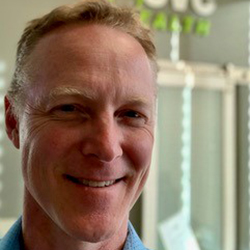
Richard McIlmoyle
Dr. McIlmoyle has been a practicing chiropractor for 20+ years and holds a special interest and post-graduate education in pain management. He has presented internationally and currently provides instruction to chiropractors, physiotherapists and registered massage therapists through private continuing education courses and Pain BC. He also sits on the board of directors and is the Chair of the Research committee with the Canadian Chiropractic Research Foundation.
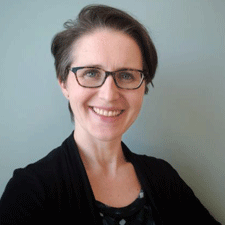
Heather Fulton
Dr. Heather Fulton, a Registered Psychologist and Director of Wayfinder Wellness Centre, works in the intersection of mental health and substance use, commonly referred to as concurrent disorders. A member of the Motivational Interviewing Network of Trainers, she is also certified in Cognitive Behavioral Therapy, Seeking Safety (a treatment for trauma, substance use, or both), and Invitation to Change (an evidence-informed approach for family members to support loved ones with substance use challenges). She is a Clinical Instructor and Adjunct Professor within the Departments of Psychiatry and Psychology at UBC.

Cameron Ross
Dr. Cameron Ross is a family physician in Chilliwack, Lead Faculty EBM for UBC Postgraduate Dept of Family Practice, a UBC Associate Professor of Family Medicine (Clinical) and has been teaching medical residents for more than 25 years. He is a recipient of the Peter Grantham UBC Post Graduate Teaching Award in Family Practice, and the BC College of Family Physicians Exceptional Teacher Honour. He is an active participant in curriculum development for chronic pain management workshops as part of the BC practice support program (PSP) and was recently the family practice representative on the College of Physicians and Surgeons of BC Committee. He is a co-author of the recent BC guideline on managing patients with pain in primary care.
Group two
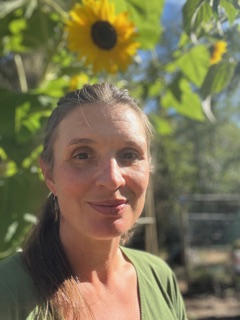
Sandra Hodge
Sandra Hodge is a compassionate and dedicated Family Nurse Practitioner with over two decades of diverse healthcare experience. This includes remote clinic and hospital work in Canada, Australia, New Zealand and volunteer work in the Solomon Islands, Haiti, Thailand and Myanmar. She is a military veteran with 25 years of medical service, and has co-founded nonprofit and charity organizations to enhance educational opportunities in Myanmar. Since 2013, she has provided holistic, patient-centered primary care, specializing as a Level 4 Myoactivation provider in fascial release and incorporates and understands the importance of trauma informed care and trauma releasing techniques with her treatments. With her mental health certification, Sandra's unique empathetic perspective is shaped by her own experiences with chronic pain and complex PTSD. Deeply involved in disaster relief since 2005 with CMAT and other grassroots organizations, she balances her professional life with bucket filling activities like gardening, permaculture, and outdoor pursuits, embodying a holistic approach to well-being and community care. As a proud mother and partner, she focuses on fostering balanced, thriving and enhancing environments both personally and professionally.

Susan Reid Schellinck
Susan Reid Schellinck is an OT who works exclusively with people with chronic pain. She received her BSc from UVic, and OT degree from UBC. She is clinical faculty for Pain BC and Canadian Association of Occupational Therapists, and is a guest lecturer for UBC MScOT students. She was a subject matter expert for Pain BC’s Pain Foundations online course, and is on the Pain BC Project ECHO team hub. Susan is a board member for Canadian Neuromodulation Society, and PacificSport Vancouver Island. She tours Canada teaching other OTs about assessment and treatment of chronic pain.
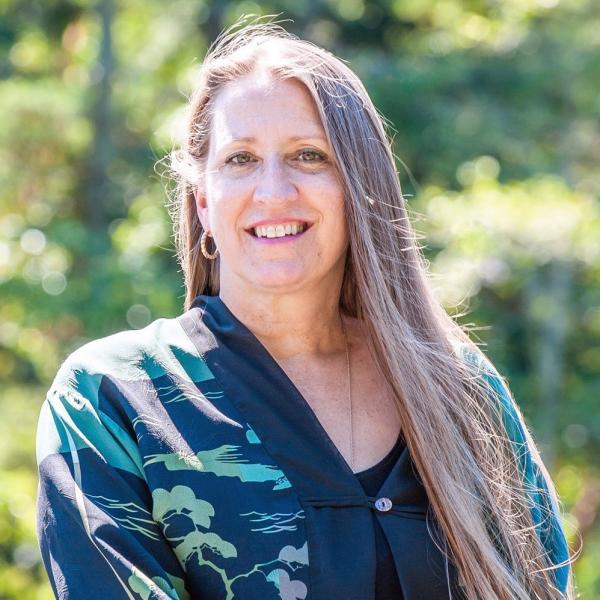
Launette Rieb
Dr. Launette Rieb is a Clinical Associate Professor in the Department of Family Practice at the University of British Columbia (UBC). She holds a Certificate of Added Competency in Addiction Medicine from the College of Family Physicians of Canada, and is a Diplomat of the American Board of Addiction Medicine. She was the co-creator and initial Physician Director of BC’s first Addiction Medicine Fellowship and contributed to the formation of BC’s first Pain Medicine Fellowship. She works and does research on pain and addiction, serving clinical populations through ActumHealth and St. Paul's Hospital. Dr. Rieb is the recipient of a UBC Post Graduate Teaching Award and the BC College of Family Physicians Exceptional Teacher Honour.
Areas of specialty: Pain education, CRPS, pain management, movement, ACT
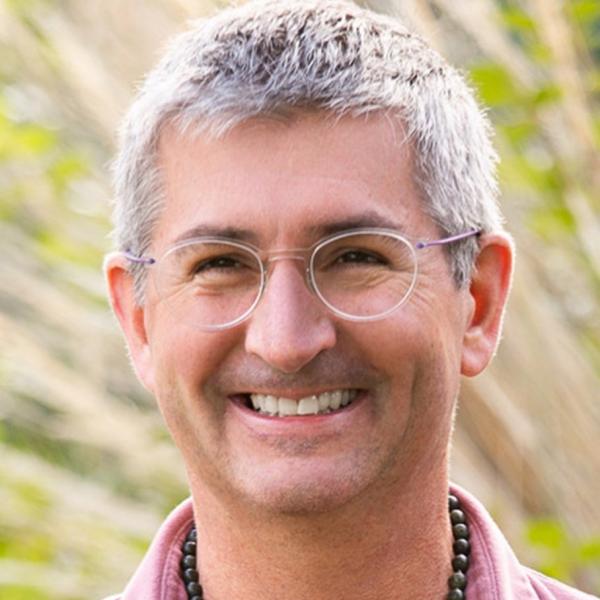
Neil Pearson
Neil is a physical therapist, yoga therapist, Clinical Assistant Professor at the University of British Columbia, and faculty in four accredited yoga therapy programs. He is also a consultant to the BC Medical Association, and to Lifemark’s 300+ clinics in Canada. He was a lead contributor to Pain Canada's Pain Foundations CE course, Pain BC's Gentle Movement @ Home video series, and the self-care for chronic pain and self-care for low back pain health journeys in PC Health’s mobile app.
Areas of specialty: Physiotherapy, physiotherapy pain care, yoga therapy for people living in pain, pain education
Group three
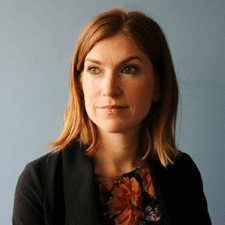
Melanie McDonald
Melanie is Pain BC’s Director of Support Services. She has a master's degree in social work with a background working in direct practice, leadership, and clinical supervision in a variety of settings including oncology, hospice, and community care. She has a passion for supporting program development and leading diverse teams to deliver high quality and trauma-informed services. She is an Adjunct Professor (Research) at the University of British Columbia Faculty of Social Work.
Areas of specialty: Chronic pain, mental health, psychosocial oncology, social work practice and leadership.
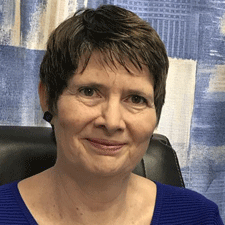
Judy Dercksen
Dr. Judy Dercksen has been a family doctor for thirty years, a pain consultant and family physician for the largest pain charity organization in the world (Pain BC). Her lived experience with complex PTSD contributed to her understanding of herself and to becoming a better informed doctor and pain partner. She believes patients and health care providers collaborating within pain communities can alleviate the distress of chronic pain.

Kat Dikeakos
Kat is a Vancouver-based occupational therapist, owner and Clinical Director of Are You Better Yet Therapy Services, and person living with chronic pain. Kat founded the CAOT Chronic Pain Practice Network in 2016 and is the CAOT-BC Advisory Committee representative for Mental Health & Chronic Pain. She has extensive experience in rheumatology, perinatal health and working with adults under 40 with chronic pain. Kat treats clients across Canada, has consulted for many self-management programs including the St. Paul’s Complex Pain Centre, and is involved with mentoring OTs on a global level.
Areas of specialty: Women’s and perinatal health, post-viral syndromes/chronic fatigue, auto-immune issues, self-management, burnout, pain education, trauma
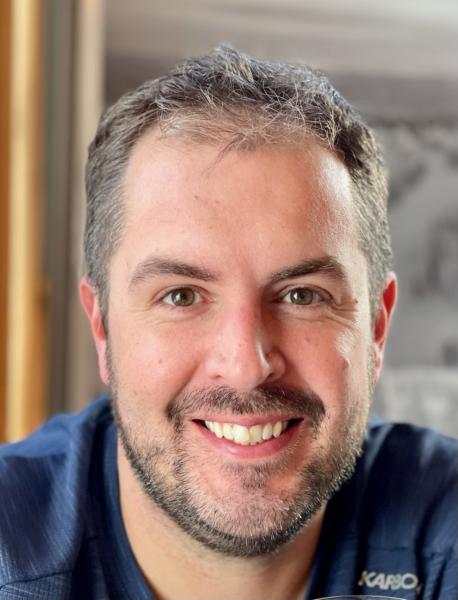
Colin Phillips
Dr. Colin Phillips completed his training in anesthesia and chronic pain at Western University. He currently splits his time between those specialties at University Hospital of Northern British Columbia (UHNBC) in Prince George, where he serves as Medical Lead Chronic Pain Specialized Care. The majority of his pain focus is in interventional pain management.
Group four

Tori Etheridge
Tori has experience working in public health care, private practice, neurological research and health care leadership and management. She is also a certified vestibular therapist and a Clinical Assistant Professor at UBC. She is a past executive with the Pain Science Division of the Canadian Physiotherapy Association. Currently, Tori serves as the Provincial Clinical Lead of Initiatives and Innovation for Pain Care BC, where she leads the development of practice and policy to enhance patient care.
Areas of specialty: Physiotherapy, neuro-rehabilitation, persistent Pain, trauma-informed care, concussion, vestibular, migraines and headaches, leadership and mentorship
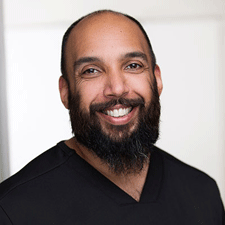
Garry Palak
Dr. Garry Palak is a Physical Medicine & Rehabilitation and Pain Medicine specialist. He graduated from McMaster University and relocated back to British Columbia in 2019 where he splits his time between the Pain Clinic at UHNBC, in Prince George and the Initium Centre for Pain Medicine in Abbotsford. In addition to the role of Medical Director of Pain Care BC, he is the Medical Lead for Rehabilitation Services in Northern Health, sits on the board at the Canadian Academy of Pain Management and is a clinical assistant professor in the Department of Physical Medicine & Rehabilitation at UBC.
Areas of specialty: Musculoskeletal medicine, interventional pain medicine, regenerative medicine and education.
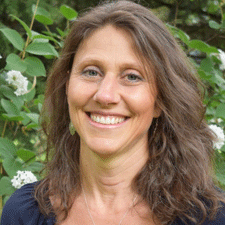
Natasha Edney
Natasha is a Psychotherapist, Somatic Trauma Therapist, and Mindfulness Teacher (MBSR), with a special interest in exploring the connection between chronic pain/ disease and underlying trauma. She has 18 years' experience in private practice, and now works from Solis Integrative Health Centre specializing in chronic pain and trauma. In addition to her psychotherapy practice Natasha facilitates Chronic Pain Support Groups, co-designed/facilitates an Integrative Health Program providing education and self-management tools for chronic pain patients and facilitates Pain BC’s Making Sense of Pain program. Natasha sits on the Kootenay Boundary Division of Family Practice Chronic Pain Project Steering Committee
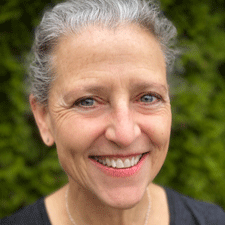
Barbara Eddy
Barb Eddy is a nurse practitioner and practises primary care in the Downtown Eastside of Vancouver since 2007 and on the North Shore since 2020. Prior, she was a clinical nurse specialist with the Vancouver Home Hospice team, a nurse educator and home care nurse. Most recently Barb championed the start of the Vancouver Community pain service to offer non-pharmacological pain interventions to those living with homelessness, poverty, substance use disorders and mental health conditions. Barb has been offering myoActivation since 2017 to her primary care and pain service patients. Barb is an adjunct assistant professor with the UBC School of nursing and an associate with the Division of Palliative Care, UBC Department of Medicine.
Our staff
Our staff
How to become a Mentee
- Please, complete the waitlist form to demonstrate your interest in becoming a mentee in the BCAMN
- The BCAMN does quarterly intakes of new Mentees until all spaces are filled
Contact us
If you have questions, please email education@painbc.ca.